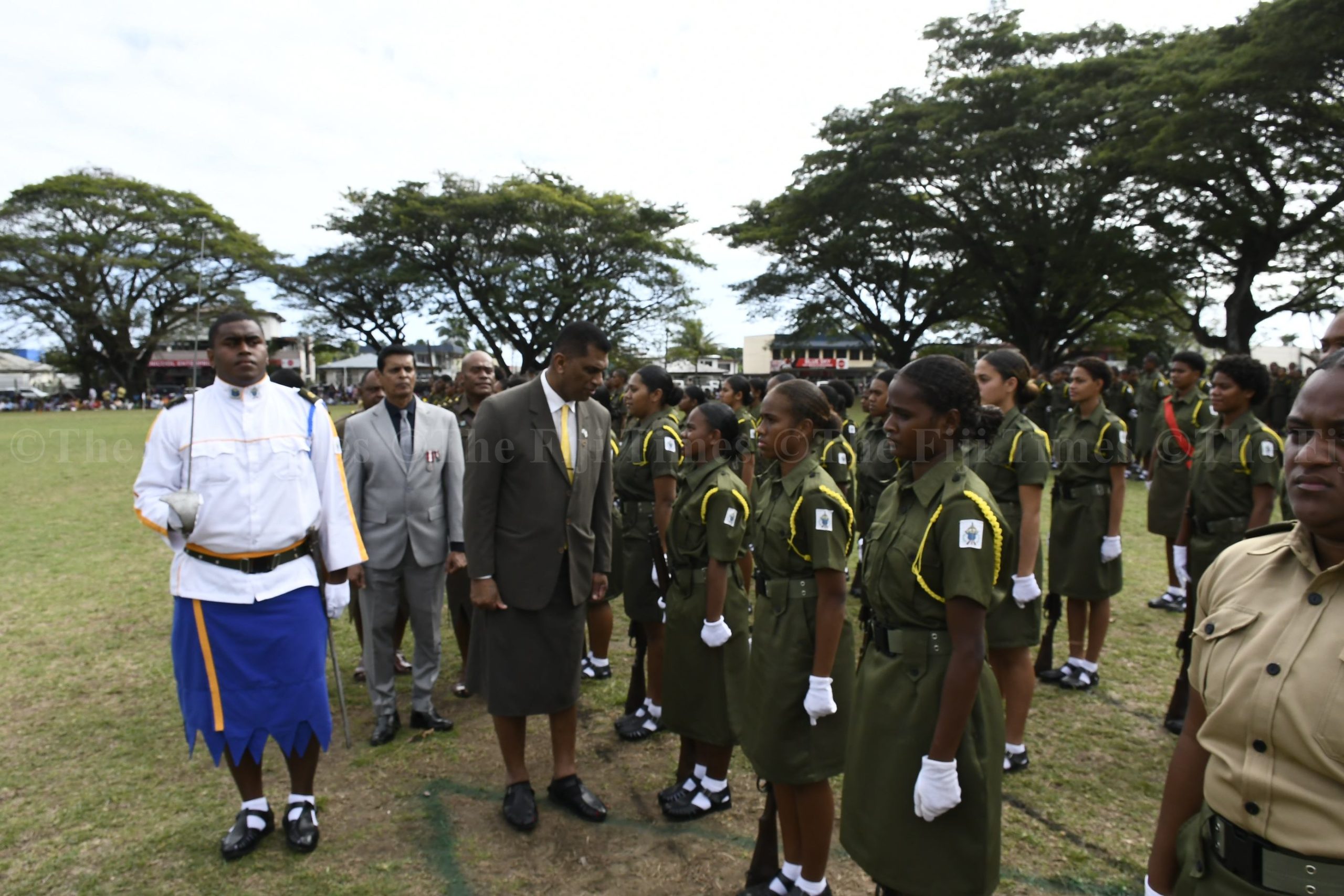Leadership, at its core, should be about serving others!
This timeless truth, echoed by Education Minister Aseri Radrodro during the Natabua High School cadet passing-out parade in Lautoka yesterday, speaks to the essence of what it truly means to lead.
Addressing over 1100 cadets, Mr Radrodro praised their dedication, sacrifice, and resilience. He noted that their commitment in both sun and rain exemplified the qualities of true leadership.
The cadets, through discipline and determination, demonstrated their willingness to put in hard work even when no one was watching, he noted. It’s a mark of integrity, a trait that is important for any leader. Commitment, as shown by the cadets is about showing up, giving your best, and rising above excuses.
We say one of the pillars of effective leadership is respect for authority.
Authority provides structure, order, and purpose. In a world that has evolved greatly, and driven by technology, learning to respect it, especially from a young age, creates a foundation for disciplined behaviour. Thus, cadet training embraces an understanding that leadership flourishes within systems. In saying that, we accept that listening to instructions, adhering to guidelines or rules, and showing punctuality should uphold accountability, a critical trait in any leader.
In the face of that, we say equally important is teamwork. No leader stands alone.
The impressive formation of a phoenix, as the Natabua cadets displayed yesterday, was not the work of one, but of many. It reflected coordination, mutual respect, and shared vision.
So, through the eyes of the cadets, we are reminded that leadership thrives when differences are embraced and every member of a team feels seen and heard.
Understanding and appreciating each other’s strengths and weaknesses should foster a sense of unity.
In a diverse nation like Fiji, where traditions, backgrounds, and beliefs are many, embracing differences is a necessity.
We say true leadership requires empathy and understanding as well.
Discipline is about consistency and structure. In cadet training, it manifests through drills, punctual attendance, listening attentively, and executing tasks precisely.
In life, these same qualities translate into success, responsibility, and moral leadership.
So we say, when young people understand the importance of these basics, they are better prepared to contribute meaningfully to their communities and to the nation.
As Mr Radrodro said: “You have shown us that you can be trusted to lead, to be part of something bigger than yourselves.”
That statement captures the heart of leadership. It talks about service!
It is in the quiet moments of hard work, the early arrivals for training, the willingness to follow instructions, and work with others, that real leadership is built.
It demands respect and discipline.
And it should translate to leadership also at the national level.
These are values that can shape a strong, united nation.
So as cadets around the country, in various schools, march forward, and step into the wider world, they carry with them not just the pride of their school, but the hopes of a country that believes in their potential.
In a sense, the strength of a nation lies in the character of its people!



